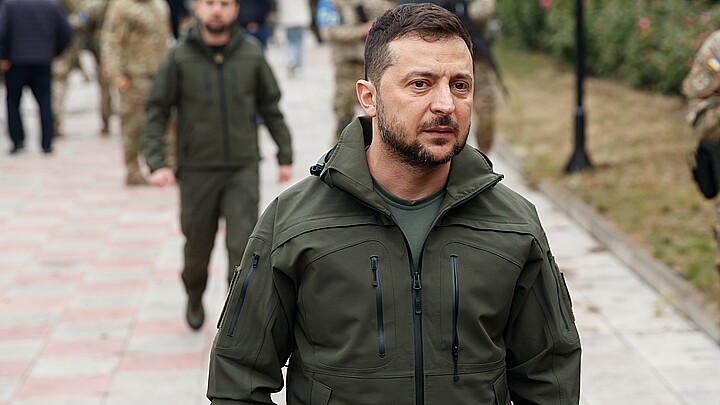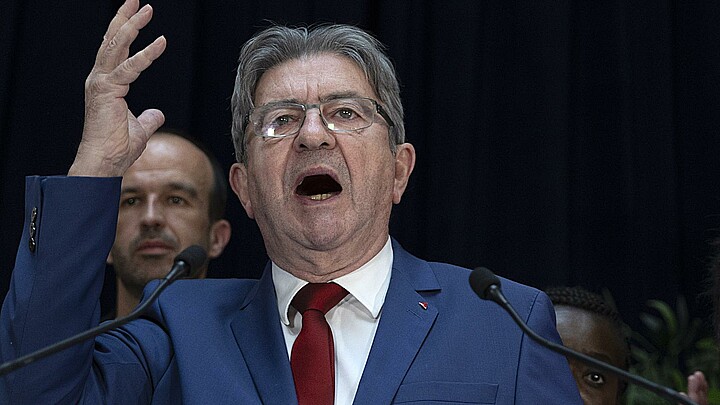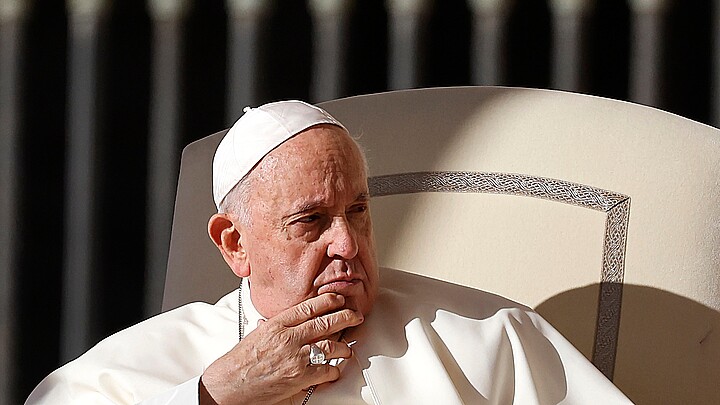Politics
Russia warns of military deployment to Cuba and Venezuela if Ukraine negotiations fail
Hope for a diplomatic resolution is beginning to dwindle as the Russia-U.S. negotiations in Geneva and a subsequent NATO-Russia meeting appear to have failed
January 13, 2022 12:41pm
Updated: January 18, 2022 10:57am
Russia’s top diplomat refused to rule out a Russian military deployment to Cuba and Venezuela if tensions between Washington and the Kremlin reach a breaking point.
Deputy Foreign Minister Sergei Ryabkov — who headed Moscow’s delegation in Monday’s talks with U.S. officials in Geneva — said he could “neither confirm nor exclude” the possibility of Russia sending forces to Cuba and Venezuela if a diplomatic agreement over Ukraine is not reached.
The Kremlin’s top diplomat compared tensions caused by Russia's military buildup along Ukraine’s border to the Cuban Missile Crisis in an interview with Mezhdunarodnaya Zhizn magazine last month.
That crisis — which many historians believe is the closest the world has come to nuclear war — ended after Moscow agreed to withdraw its missiles from Cuba in exchange for Washington’s pledge not to invade the island and the removal of U.S. missiles from Turkey.
But hope for a diplomatic resolution between the two superpowers is beginning to dwindle as the Russia-U.S. negotiations in Geneva and a subsequent NATO-Russia meeting appear to have failed, as Washington and its allies refuse to bend to Moscow’s demand to halt NATO expansion further into Eastern Europe.
In an interview with Russian RTVI TV, Ryabkov noted that “it all depends on the action by our U.S. counterparts,” pointing to Putin's warning that Moscow could take military-technical measures if the U.S. increases military pressure.
Putin previously expressed concern that NATO could use Ukraine for the deployment of missiles capable of reaching Moscow and asserted that Russian warships armed with Zircon hypersonic cruise missiles could offer the Kremlin a similar advantage if deployed in neutral waters.
Zircon, which Putin said flies at nine times the speed of sound to a range of more than 620 miles, is hard to intercept and could be fitted with conventional or nuclear warheads.
But Putin’s warning comes at a dangerous time in the region as a new left-wing and authoritarian wave of leaders was recently elected — once again creating a foothold for Russia in the United States’ very own backyard.
While Russian involvement in the region slowed significantly after the Cold War, Moscow has intensified contacts with Cuba and Venezuela in recent years as tensions with the West continued to mount.
When Hugo Chavez took power in 1998, the Kremlin saw an ally in the staunchly anti-American leader and has since then sold advanced weapons to Caracas and even sent troops and two Tu-160 bombers — capable of carrying nuclear weapons — to support the current Nicolas Maduro regime in Venezuela.
Engagement with other countries including Nicaragua, Ecuador, Peru, Argentina and Brazil in recent months have also been reported.
But as neither Moscow nor Washington appear ready to make the necessary concessions to secure a de-escalation, world leaders are becoming increasingly concerned.
At Thursday's meeting in Vienna of the Organization for Security and Cooperation in Europe (OSCE), Polish Foreign Minister Zbigniew Rau, the OSCE Chairman-in-Office, noted that "the risk of war in the OSCE area is now greater than ever before in the last 30 years.”
“For several weeks, we have been faced with the possibility of a major military escalation in Eastern Europe," he said.
At a meeting of European Union foreign ministers in Brest, France, Danish Foreign Minister Jeppe Kofod stated that it’s important “for Putin to understand that the military threats, the game he’s playing, the way he’s trying to take us back to the darkest days of the Cold War, is totally unacceptable.”
Similarly, the EU’s foreign policy chief, Josep Borrell, reiterated that “any further aggression against Ukraine will have massive consequences and severe costs for Russia,” saying that the 27-country bloc is preparing to send financial and logistical support to Kiev.
But ultimately Ryabkov said a refusal by the U.S. and its allies to consider the key Russian demand for guarantees against the alliance’s expansion to Ukraine and other ex-Soviet nations makes it hard for negotiations to advance.
“The U.S. wants to conduct a dialogue on some elements of the security situation ... to ease the tensions and then continue the process of geopolitical and military development of the new territories, coming closer to Moscow,” he said. “We have nowhere to retreat.”










